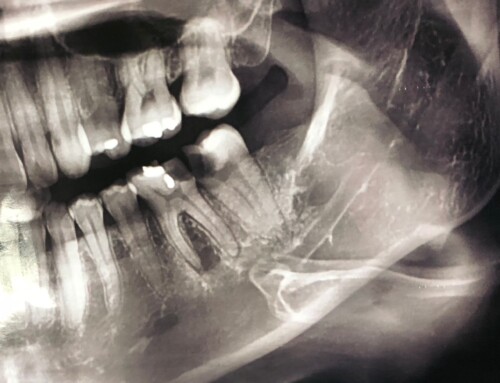Latest Updates on Vaping – Bans, Health Risks, Wanting to Quit?
When vaping was first introduced, it was marketed as a healthier alternative to smoking cigarettes. The popularity of vaping gained momentum and became popular with previous smokers of all ages. Young individuals who had never smoked also began to use vapes with more regularity. Many people assume the aerosol released during the vaping process is only water vapor, and they are not aware of any of the potential side effects.
Since vape products were relatively new, no long-term knowledge of the effects on the body and oral health was available for those considering trying them. If you or someone you know is considering trying a vape product, it’s important to do your research and learn the latest information about health risks before you decide. Those who are already vapers and interested in quitting due to health risk updates can also seek out advice from a medical professional.
What is Vaping?
Vaping is the use of an electronic cigarette, also called an e-cigarette. Instead of being lit like a paper cigarette, vapes electronically heat liquid held inside a cartridge. The liquid becomes an aerosol that the vaper can inhale into the lungs. Liquid cartridges contain a variety of different substances and provide different purposes. Most commonly, the liquid or e-juice contains nicotine, additives, and flavoring.
Other common options are CBD oil and THC in areas where it is available. Due to the flavor options, some people vape for the enjoyment of the taste and may not realize the detrimental effects of the other ingredients e-juice contains. Often used as an alternative to smoking, the sales of tobacco cigarettes have been in decline while the sales of vaping products have grown significantly.
Why Does Vaping Appeal to Ex-Smokers?
The idea of using e-cigarettes instead of traditional cigarettes appeals to smokers partially due to the popular methods of marketing. As vapes became more mainstream, they were marketed as a safer and healthier alternative to smoking since the user inhales aerosol instead of smoke.
Some smokers turned to e-cigarettes because they provide a source of nicotine without smoke. Since more studies about the safety of vaping have been conducted, there have been enough injuries from certain products to trigger a response from the Center for Disease Control (CDC) and the United States Food and Drug Administration (FDA) against the use of e-cigarettes with specific ingredients.
What are the Health Risks?
The health risks from general vape use are still disputed, but the CDC and FDA have now issued warnings due to an outbreak of e-cigarette and vape-related lung injuries, referred to as EVALI. These injuries have been linked to the use of e-cigarette fluid, most commonly in the fluid that contains THC. Another source of frequent injury has been linked to the presence of vitamin E acetate used in liquid.
Vitamin E acetate has been found in the lungs of those suffering from EVALI. Although other substances are suspected of causing potential injury to e-cigarette users, currently, there is not enough evidence for the FDA and CDC to issue additional warnings. Reported injuries have varied in severity, from short-term hospitalizations to death.
Vape Bans
Second-hand concerns from vaping have not been studied enough to know the effects of vaping on others. Although e-cigarettes are marketed as an alternative that is safer than second-hand smoke, many venues ban their use inside facilities due to the potential for bystanders to inhale aerosols and become exposed to chemicals. Federally, e-cigarettes are regulated as tobacco products and cannot be sold to minors.
Some individual states have banned indoor vaping entirely. Others prohibit e-cigarette use anywhere smoking is also banned. Some states have enacted more complicated bans, allowing e-cigarettes to be used in bars and restaurants where smoking is banned but still banning them in other indoor areas. A few states have no restrictions on indoor vape use at all. Due to regulation differences, visitors to another state should check local and state regulations before vaping use.
CDC and FDA Recommendations for Vaping
With the new knowledge about the health risks of e-cigarettes containing THC, the CDC recommends against their use for all individuals. The CDC also recommends against the use of vitamin E acetate in e-juice due to the link to adverse health effects. Those who vape should never add their own substances to e-juice since this can be dangerous and could have severe health consequences.
The CDC also warns against e-cigarette use in youths, young adults, and pregnant women. In addition to issuing warnings and providing recommendations, the CDC is also working on studying the effects of vaping on health and finding ways to communicate information to the public. Some of these efforts include tracking cases of EVALI and studying the progression of the injuries. The availability of information is constantly evolving, so if you use e-cigarettes, it’s important to stay informed with the latest updates.
Oral Health and Vaping
Although the focus has been on EVALI and the effect of vaping on lung health, dentists are also warning against e-cigarettes and their effect on oral health. While it’s common knowledge that tobacco products are detrimental to dental health, e-cigarettes that contain nicotine still set you on the path to dental and gum problems. Nicotine is a substance that reduces blood flow, and a reduction in blood flow in the gums causes them to recede over time. Receding gums with poor circulation lead to tissue damage over time.
Vaping also leads to a reduction of saliva in the mouth, causing dry mouth and the complications associated with it. Individuals who vape but do not remain properly hydrated can experience a build-up of bacteria leading to bad breath and tooth decay.
Resources to Quit Vaping
Since some individuals use e-cigarettes to quit smoking tobacco cigarettes, it can also be difficult to quit vaping. Most e-cigarettes contain nicotine, which is an addictive substance and can be difficult to stop using without help. E-cigarette use also has some of the same psychological addictive factors as smoking. If you want to stop vaping, you can use many of the same cessation resources used by tobacco smokers.
E-cigarette users who are concerned with the reports about EVALI can speak with a physician about resources for cessation, but it is not recommended for former smokers to go back to tobacco products in order to stop vaping since the detrimental health effects of tobacco cigarettes are well known. FDA products and medications used for smoking cessation are often successful tools for e-cigarette users to try when attempting to quit both vaping and smoking permanently.
Schedule Your Appointment
Medical providers are a valuable resource for information about e-cigarette use and the effect on your health. If you use e-cigarettes, it’s vital to receive regular medical and dental care to mitigate some of the health concerns that can arise. Those who are interested in quitting e-cigarette use should speak with a physician about using a cessation program. The dental providers at Ingenious Dentistry monitor the health of your gums and teeth to make sure you are not showing signs of gum disease, tooth decay, or other potential side effects of e-cigarette use. Contact Ingenious Dentistry today to schedule a check-up appointment or to discuss any questions or concerns you have about vaping or to schedule a dental appointment. Call (713) 795-5905.







